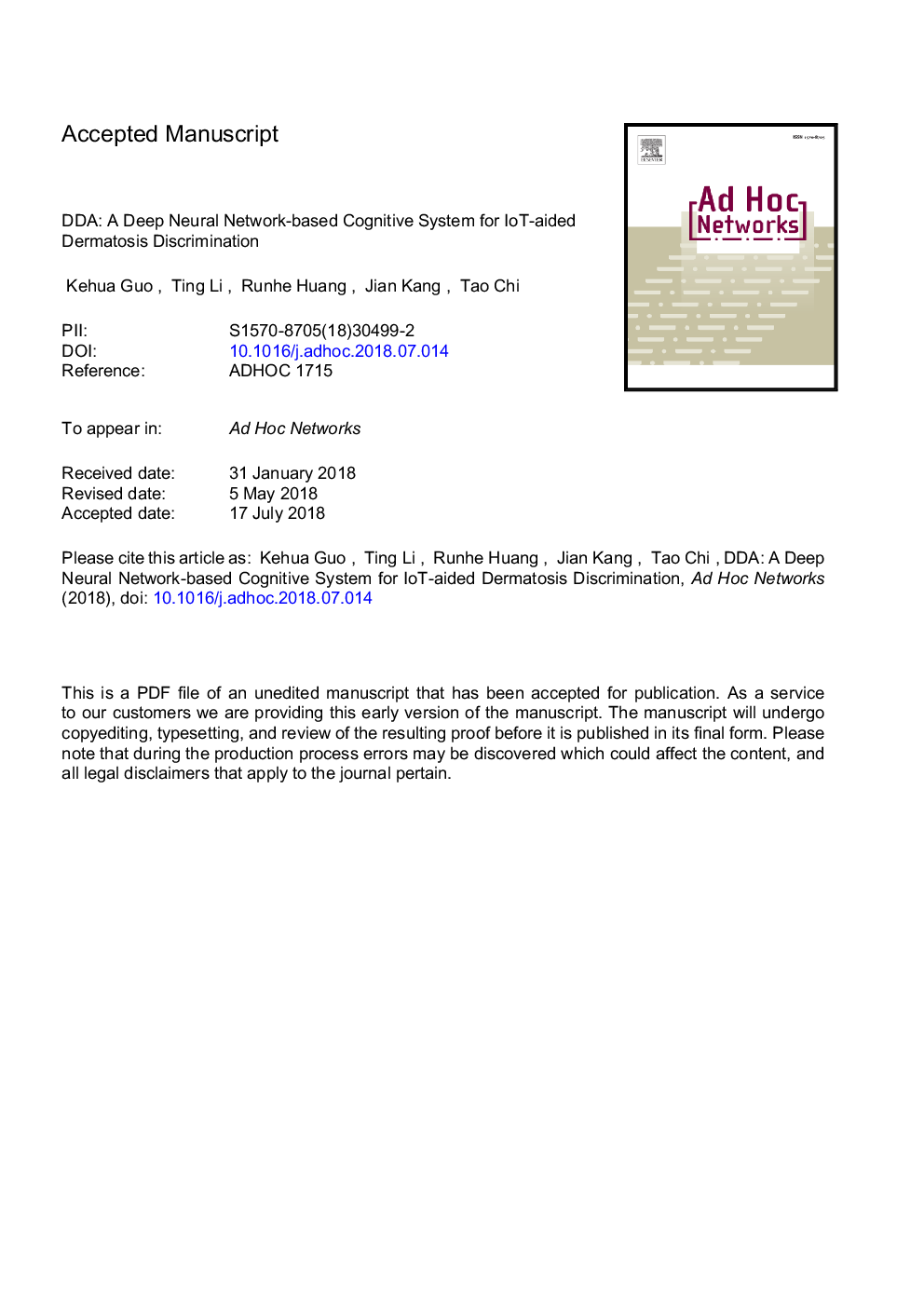| Article ID | Journal | Published Year | Pages | File Type |
|---|---|---|---|---|
| 6878362 | Ad Hoc Networks | 2018 | 26 Pages |
Abstract
The rapid development of the Internet of Things (IoT) and cognitive cyber-physical systems (CPS) has made people's daily lives more intelligent. Additionally, emerging technologies, such as wearable devices and machine learning, have demonstrated the potential for acquiring and processing large amounts of data from the physical world. In the medical field, effectively utilizing the collected medical data and providing more intelligent systems for doctors and patients to assist in diagnoses have also become important research topics. This paper presents a deep neural network-based cognitive system named DDA (dermatosis discrimination assistant) for classifying the dermatosis images generated by confocal laser scanning microscopes. Considering the lack of labels, we increase the labeled data automatically using an incremental model based on a small amount of labeled data and propose a disease discrimination model to distinguish and diagnose the categories of the disease images. In this system, the diagnoses of seborrheic keratosis (SK) and flat wart (FW) are used as examples, and experiments are conducted using the proposed models. Experimental results show that this system performs almost as well as individual dermatologists and can identify and diagnose other common dermatoses.
Related Topics
Physical Sciences and Engineering
Computer Science
Computer Networks and Communications
Authors
Kehua Guo, Ting Li, Runhe Huang, Jian Kang, Tao Chi,
